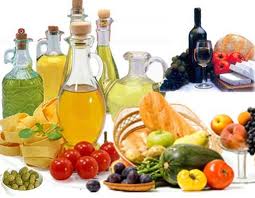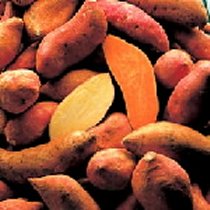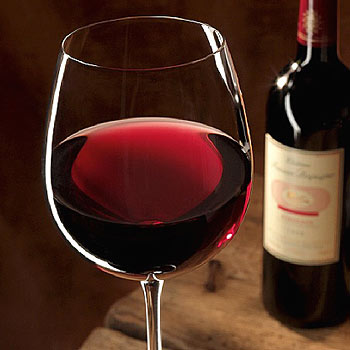Greek Inspired Power Foods
 Look to the Mediterranean diet to help you blast through even the toughest of glutes workouts.
Look to the Mediterranean diet to help you blast through even the toughest of glutes workouts.
Libido Booster
Not only has the Mediterranean diet been linked with healthy hearts, but several studies have also shown that it may be associated with improved erectile function in men who are overweight or diabetic. Increasingly, research is showing that our vasculature – the system of arteries and veins that travel throughout our body – behaves as one single system. In other words, if something is good for your heart, it’s probably also good for your brain, and – as we are now learning – your love life too.
Life Extender
Researchers first noticed the impressive health and longevity of the people of Crete back in the 1950s. Since then, studies have demonstrated that ethnic Cretans have one of the longest average life spans on the planet. While some of that good health could be a function of genetics, much of it is attributed to their ancient diet, rich in fruits, vegetables, beans, nuts and herbs. Olive oil is the primary fat source, replacing the butter that is common in other European countries. Healthy fat accounts for nearly 40 percent of their daily energy intake.
Those Mediterraneans sure know how to live, don’t’ they? Long touted for its disease-prevention benefits, the Mediterranean diet has now been shown to be a great fit for active women. Recent research has demonstrated that the diet made famous by inhabitants of the Greek island of Crete – as well as other cultures of the Mediterranean basin – can potentially help banish excess body fat. Here are the key foods that you can easily add to your usual routine to help you embrace your inner Mediterranean. (Sunshine and laid-back, family-oriented lifestyle not included).
Greek-Style Yogurt
 A protein-rich gem, Greek-style yogurt contains up to 20 grams of protein per three-quarter cup serving (by comparison, most other plain yogurts provide only six to seven grams per serving), making it great for building metabolism-boosting lean muscle. Enjoy it as part of a snack, recovery shake or with low-fat granola, nuts and berries for breakfast.
A protein-rich gem, Greek-style yogurt contains up to 20 grams of protein per three-quarter cup serving (by comparison, most other plain yogurts provide only six to seven grams per serving), making it great for building metabolism-boosting lean muscle. Enjoy it as part of a snack, recovery shake or with low-fat granola, nuts and berries for breakfast.
Whole-Grain Pasta
Though not a traditional part of the diet of Crete, whole-grain pasta is part of the diet of other Mediterranean countries, and whole grains and cereals are an important part of the Mediterranean diet as a whole. The key is to use your grains in moderation. Try making your pasta with tons of fresh veggies to help you feel full without adding too many extra calories, and make sure any type of pasta you choose (wheat, spelt, rice, etc.) is made from 100 percent whole grain. That way, you’ll derive more fiber, keep your blood sugar better-controlled and stay full for longer – all important for keeping cravings at bay.
Beans
Known as pulses in the Mediterranean diet, the so-called legume family that encompasses beans, lentils, peas and chickpeas are sensational choices for so many reasons. Not only are they super-rich in filling fiber (providing around six to eight grams per half-cup serving), but they are also a good source of protein (about eight to nine grams per serving). So whether it’s hummus and veggies as a snack, lentil soup for lunch or vegetarian chili with kidney beans for dinner, try to include beans for dinner, try to include beans in your diet at least half of the days of the week.
Sweet Potatoes
 Despite their mixed reputation, regular (white) potatoes do make up an important part of the diet of Crete. And while potatoes with the skin on are actually quite nutritious, shy not step it up by choosing sweet potatoes instead? A great carbohydrate-based choice that will help provide energy for your workouts, sweet potatoes are loaded with vitamin A, a key immune system-booster, and have less impact on your blood sugar than their white cousins.
Despite their mixed reputation, regular (white) potatoes do make up an important part of the diet of Crete. And while potatoes with the skin on are actually quite nutritious, shy not step it up by choosing sweet potatoes instead? A great carbohydrate-based choice that will help provide energy for your workouts, sweet potatoes are loaded with vitamin A, a key immune system-booster, and have less impact on your blood sugar than their white cousins.
Fruit
Instead of sweets and baked goods, the Greeks typically eat fresh fruit for dessert. While grapes and figs may be indigenous to the Mediterranean region, enjoy a variety of fruit sin your diet – and remember that different colors mean different nutrients, so mix it up. If you’re worried about the sugar content, don’t be: A recent study that followed subjects for five years found that fruit eaters tend to weigh less than those who don’t’ eat fruit.
Red Wine

While not exactly a fat blaster, Mediterraneans seem to benefit from drinking wine, partly because they use it only in moderation (no more than one glass per day!), but also because it serves as a symbol of relaxation and pleasure. Howe can that benefit clean eaters? Since stress and poor sleep increase levels of the fat-building hormone cortisol, any habits that can help you relax – be it yoga, a Sunday afternoon catnap or an occasional glass of wine – may help keep belly fat under control.
Fish
As seaside-dwelling people, the Mediterraneans naturally include plenty of fresh fish in their diet. The health benefits of fish for our hearts and brains are well-established, but remember that fish is also a great source of muscle-building protein, as well as omega-3 fatty acids that can potentially boost your metabolism and help improve insulin sensitivity, which can help your body to metabolize carbohydrates more efficiently.

